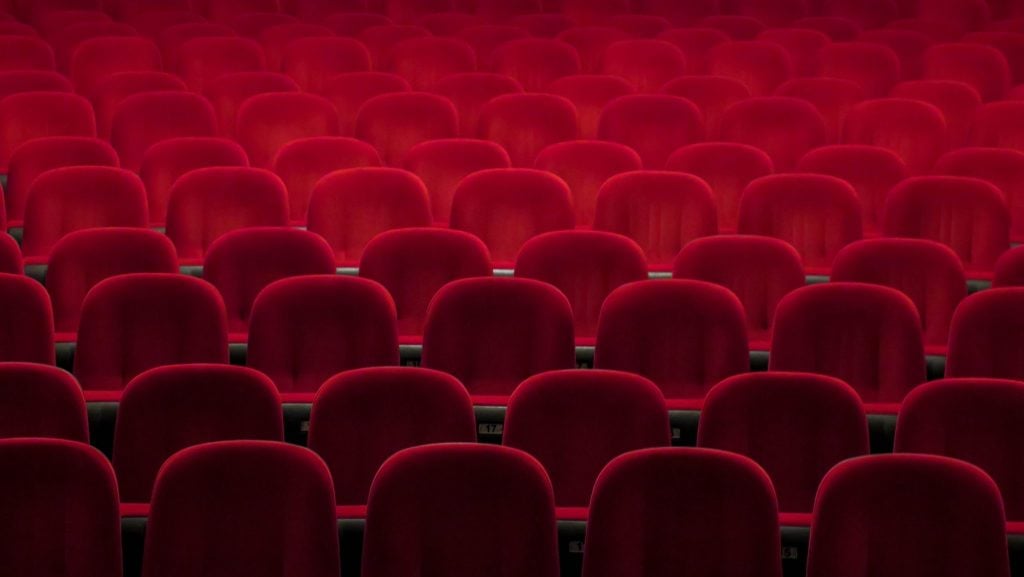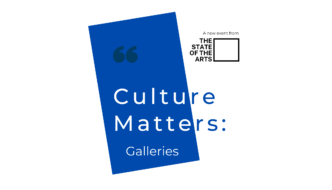An Audience From Home: has coronavirus shaped the UK’s theatrical landscape forever?
June 8, 2020

Photo by Denise Jans on Unsplash
Living in an era where modern technology has made almost everything accessible to us at the touch of a button, theatre is one of the few forms of entertainment still demanding a physical presence. Along with live music events and festivals, you can’t just ‘press play’ on a theatre production in the same way you can with films and TV programmes. That is, until now. The COVID-19 pandemic has changed lives across the globe in a staggering abundance of ways, and there has been no industry left untouched by this disease; teachers and educators have scrambled to take their lessons online; bars are operating as drive-thru services, and TV, film and theatre productions have come to a halt, leaving thousands of people out of a job in an industry reliant on the coming-together of creative bodies.
The TV and film industry is attempting to stay afloat by relying on those things that have already been recorded. Streaming platforms have been updated to include full series of TV programmes and film box sets, and release dates brought forward in a desperate attempt to entertain a nation of ‘stay at home’ individuals. And theatres are trying to do the same thing, with a plethora of productions now available to be streamed online. The National Theatre launched its ‘At Home’ service, broadcasting productions to YouTube, with The Royal Opera House, The Old Vic, The English National Ballet, Shakespeare’s Globe and many other theatres following suit. The pandemic has even inspired UK-based theatre company Headlong to commission fourteen new digital plays as part of their programme ‘Unprecedented: Real Time Theatre From A State of Isolation’, available on BBC iPlayer.
Theatre has never been so readily accessible, now existing on the same platforms as TV and film. But surely theatre is different, isn’t it? TV programmes and films are designed to be enjoyed remotely, but theatre is not. You always watch a programme or a film but you go to the theatre. A theatre production exists in a physical space, and quite often people choose to watch a play precisely because of the venue in which it’s being performed at; a venue cultivates its own personality based on the kinds of productions it produces, and vice versa. What makes theatre unique, in a way not dissimilar to live music events or festivals, is the immediacy of the performance; the inability to pause what is happening. When you go to the theatre, the experience you have is unique to anyone else’s on any other night; an actor’s intonation on a certain line, a slight change in the use of music and lighting, a restless audience. All of those things make for an altered experience. With each performance, the actors and the audience come together to create a magical bubble, one which is popped at the end of the show and never to be recreated in quite the same way.
Theatre is a one-time event, and one which exists because of the symbiotic relationship between the audience and the actors on stage. If an audience member gets up and leaves half-way through a show, that becomes just as much a part of the performance as the action on stage. Similarly, if an actor steps out of a character momentarily to call out a member of the audience for being on their phone or talking (it happens – see here!) that’s a spectacle in itself.
So, is streaming theatre productions online at odds with what theatre is as an art form? What is a pantomime without squeals of “he’s behind you!”, political theatre without the angry rustling of bags as audience members get up to leave, or an interactive experience in which you as the audience choose the direction of the story, without the audience to do so?
Theatres are doing the very best they can to keep thriving. And, whilst I am incredibly thankful for modern technology and grateful for its ability to make theatre available online and for free, particularly at a time where people are craving psychological escapism and creative stimulation more than ever, I find myself looking ahead in fear at the future of theatre.
Will audiences ever cram together again in dimly lit rooms at The Edinburgh Fringe Festival to watch unafraid students experiment with their talent on stage? Will theatre unfold on the streets as impassioned crowds of people gather to use their voices to protest? Will there be a scramble to get hold of coveted theatre tickets for a production with a star-studded cast, as eager theatre-goers hope to be part of the chosen few who get to watch that actor live on stage?
Or has theatre become something to be talked over, paused when the Deliveroo arrives, and then forgotten about when it’s time for the Zoom quiz? Is a half-empty room, filled with mask-wearing individuals who are afraid to mingle during the interval the best we can hope for? I know I speak for many when I say that I sincerely hope that is not the case.
To support theatres during the COVID-19 pandemic, click here and for more information on how to stream the best theatre at home click here.
Filed under: Theatre & Dance
Tagged with: actors, art form, audience, event, interactive, modern, online, Pantomime, performance, play, production, stage, technology, theatre, tickets



Comments